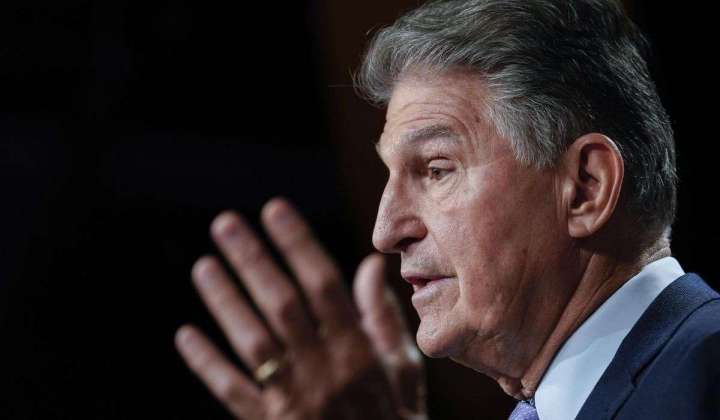Republicans, Manchin set sights on tanking Biden’s climate friendly 401(k) rules

Republicans in Congress are seeking to scuttle new rules from the Biden administration that allow retirement fund managers to consider climate change and other factors that conservative critics call “woke capitalism.”
House and Senate Republicans plan to file a Congressional Review Act resolution to force a vote on dismantling new Labor Department rules that allow retirement plan fiduciaries to engage in environmental, social and governance investing, or ESG, when handling clients’ money, Republican Sen. Mike Braun of Indiana confirmed to The Washington Times.
Opponents argue the rules jeopardize roughly 150 million workers and $10 trillion under the Employee Retirement Income Security Act of 1974 by greenlighting retirement managers to invest workers’ 401(k)s in ESG funds, and by rescinding the Trump-era requirement that investments be chosen based solely on financial interests.
Mr. Braun will file the resolution’s Senate version and Rep. Andy Barr, Kentucky Republican, will file the House version.
Sen. Joe Manchin III will break from his party to join the Republican-led effort as the lead and only Democrat, an aide to the conservative West Virginian confirmed to The Times.
The resolution will not be subject to the Senate’s 60-vote filibuster threshold, but it will still fail in the upper chamber unless Republicans can convince one additional Senate Democrat to get on board.
However, the vote will force Democrats to go on record about the ESG policy as Republican state officials across the country wage a multi-billion-dollar campaign against the climate-friendly investment practice they say is part of a broader “woke capitalism” trend.
A similar endeavor by Mr. Braun and Mr. Barr at the end of the previous Congress in December was unsuccessful.
The White House referred a request for comment to the Department of Labor, which declined to comment.
The resolution will come in the wake of Republican attorneys general from 25 states filing a lawsuit last week against the Labor Department rules, which went into effect Monday. The officials argued that the agency overstepped its authority and that money managers should only be permitted to consider financial returns.
“The Biden administration is promoting its climate change agenda by putting everyday people’s retirement money at risk,” said Utah Attorney General Sean Reyes, the Republican who led the lawsuit. “Permitting asset managers to direct hard-working Americans’ money to ESG investments puts trillions of dollars of retirement savings at risk in exchange for someone else’s political agenda.”
The rules also remove a restriction blocking employers from using an ESG fund as a default option for workers automatically enrolled in 401(k) plans, which means Americans may unknowingly invest in the funds.
The rules were unveiled in October 2021 and finalized in November 2022.
Labor Department officials said the Trump administration’s rules “unnecessarily restrained” fiduciaries’ ability to weigh ESG factors when choosing 401(k) investments.
“A final rule is necessary to reverse the [Trump-era] rule’s chilling effect on the integration of ESG factors into the investment selection and asset management process,” Lisa M. Gomez, assistant secretary of labor for the Employee Benefits Security Administration, told reporters in November.
Ms. Gomez emphasized that investment managers may consider ESG factors when making decisions but are not required to do so.
“While climate change is a critical issue, that’s not what this rule is about,” she said.
Republicans say ESG is a coordinated effort by money managers to invest Americans’ retirement funds into “woke” causes, including climate change. In retaliation, red states have divested billions of dollars in state pension funds from some of the world’s largest financial institutions, including $4 billion from BlackRock.
ESG proponents argue that it makes financial sense to consider long-term climate risks when making long-term investments.
Despite the politics that have engulfed the issue, ESG investing has surged in recent years. The total assets under management by ESG funds reached $40 trillion last year, up from $22.9 trillion in 2016, according to data from Opimas LLC, a management consultancy for financial institutions.
Global ESG assets are expected to exceed $53 trillion by 2025. That would account for more than one-third of the $140.5 trillion projected assets under management, according to research by Bloomberg Intelligence.






